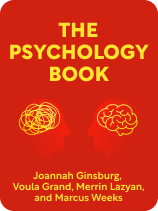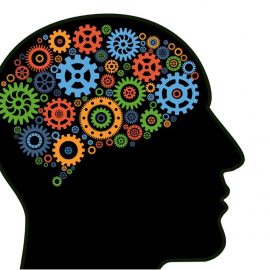

This article is an excerpt from the Shortform book guide to "The Psychology Book" by Catherine Collin, Nigel Benson, et al.. Shortform has the world's best summaries and analyses of books you should be reading.
Like this article? Sign up for a free trial here.
How has psychology evolved over the years? What are the six major fields of psychology?
Many college students take a Psychology 101 class, but not many of them actually absorb and remember the material. If you like the study of the mind but would rather pass on dry lectures, The Psychology Book offers a broad overview of psychology and how it’s changed over time.
Read below for an overview of The Psychology Book.
The Psychology Book Guide
In The Psychology Book, Catherine Collin, Nigel Benson, Joannah Ginsburg, Voula Grand, Merrin Lazyan, and Marcus Weeks provide a broad overview of the development of psychology and the fields of study within it. Starting in antiquity, the authors describe how our collective knowledge of psychology evolved over the centuries, highlighting the contributions of the most influential psychologists and researchers over time.
The authors work across a variety of disciplines, including clinical psychology, business psychology, journalism, writing and editing, and music. Together they provide a multifaceted perspective on the many concepts that comprise the field of psychology.
In our overview, we’ll explore the origins of psychology before moving chronologically through six major fields: behaviorism, psychoanalysis, cognitive psychology, social psychology, developmental psychology, and differential psychology. We’ll explore the major concepts of each field, as well as each field’s most prominent thinkers.
What Is Psychology?
Psychology is the study of human thought and behavior, as well as the mental processes that underpin them. In its infant form, psychology dealt with the concept of human consciousness before thinkers turned their attention to understanding and measuring mental processes through experimentation and behavioral observation.
Behaviorism: Studying the Mind by Observing Behavior
The authors explain that many researchers felt that the best way to analyze the human mind was through a person’s behavior. Behaviorism is the study of why people and animals behave the way they do and how they learn. Behavior was appealing to study because it was observable and could therefore be studied in experiments. American psychologists considered it to be a more scientific approach to the field than the philosophical analysis of consciousness.
Psychoanalytic Theory: The Study of the Mind’s Inner Workings
The other main approach to psychology in the early 20th century was psychoanalytic theory, or psychotherapy, which was more common in Europe. Unlike behaviorism, its focus is on the internal workings of the mind—things such as repressed memories and the unconscious—and on the treatment of mental illness through therapy.
Cognitive Psychology: The Study of Mental Processes
The authors say that after World War II, psychology’s main focus shifted from behavior and psychoanalysis to the study of mental processes like emotion and memory in what’s referred to as the “cognitive revolution.” Following the development of computer systems and artificial intelligence, some psychologists began to view the brain as an information processor, and this view—along with advances in neuroscience—gave them a model for how to study mental processes directly instead of interpreting them through behavior. This led to the field of cognitive psychology, which remains the dominant approach to psychology today.
Social Psychology: Society and the Individual
The scope of psychology broadened in the 20th century, leading to the emergence of new fields like social psychology. In the 1930s, some scientists began to study how individuals behave within groups, as well as how those groups impact the individuals within them. They also looked at relationships among individuals in groups and among groups themselves. This gave them insight into how social change occurs, humans’ tendency to conform, and the psychology behind obedience, among other things. We’ll discuss some of the most prominent ideas below.
Developmental Psychology: The Mind From Infancy to Adulthood
The authors explain that prior to the 1930s, the general belief was that children are just miniature versions of adults and that the main psychological difference between children and adults was a lack of knowledge due to age. This belief was challenged by Swiss psychologist Jean Piaget, who argued that children’s cognitive processes are different from those of adults. This led to the field of developmental psychology, or the study of how the brain changes over the course of a lifetime, including the forming of attachments, learning, and developmental disorders, among other things.
Differential Psychology: The Study of Human Differences
The field of differential psychology, which arose in the 20th century, examines differences in people’s personalities and intelligences. This has led to modern-day IQ and personality tests, trait theory, and research into personality disorders.

———End of Preview———
Like what you just read? Read the rest of the world's best book summary and analysis of Catherine Collin, Nigel Benson, et al.'s "The Psychology Book" at Shortform.
Here's what you'll find in our full The Psychology Book summary:
- Psychology 101 without the classrooms and dry lectures
- A look at the various fields of psychology and how they've changed
- Context, criticisms, and limitations of certain theories






